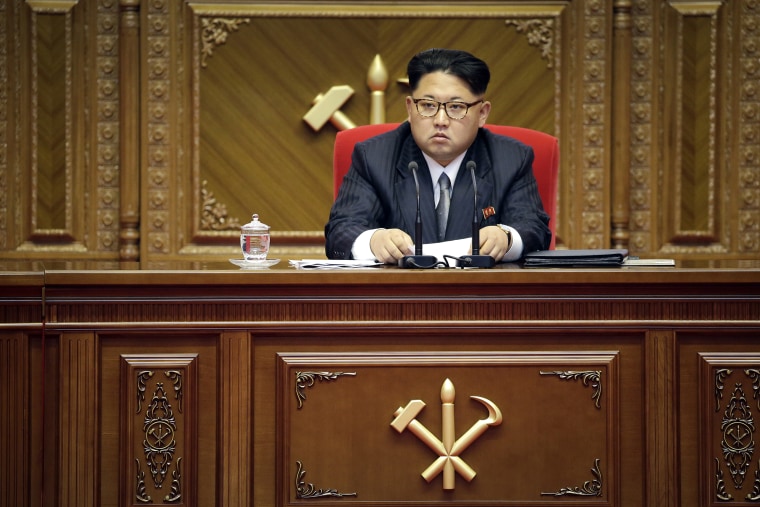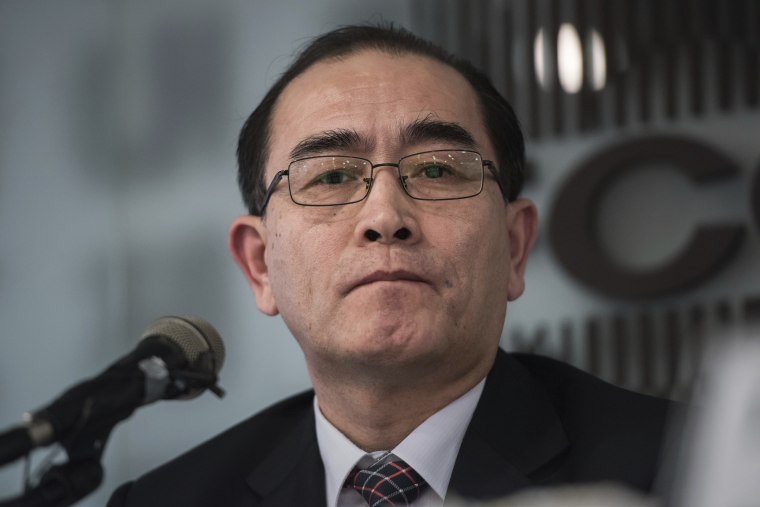North Korean elites have turned their backs on leader Kim Jong Un and dissent is on the rise, according to a recent defector who was formerly Pyongyang’s deputy ambassador to the U.K.
“Kim Jong Un’s days are numbered,” Thae Yong Ho told a press conference in the South Korean capital, Seoul, on Wednesday.
Despite official efforts to tightly restrict the flow of information in the country, "control over the residents has been collapsing due to information seeping in,” he added.
“Low-level dissent or criticism of the regime, until recently unthinkable, is becoming more frequent,” added Thae, who defected to South Korea along with his wife and children in August 2016.
"The Kim Jong Un regime even abuses the love between parents and children"
Thae has been making media appearances since his defection and giving insights into what life is like inside the poor, authoritarian and nuclear-armed country. Wednesday was the first time he had spoken with overseas media outlets.
Discussing the reasons for his defection, Thae said that his two university-aged sons were the trigger for his decision to abandon the regime.
He said that after coming to London, his sons asked him why North Korea did not allow the internet, why there was no proper legal system in the country and why officials were executed without trial.
He added that his sons were mocked by their British friends, over North Korea’s system of government, as well as their haircuts.

“This … brought a kind of debate inside my family. My sons kept on asking me why and I had to tell them the truth,” he said.
Thae said that, unlike many North Korean diplomats, he was able to bring both of his children to the U.K. with him, which spurred him to act.
North Korean diplomats posted overseas are "forced to leave one of their children in Pyongyang as a hostage," he added.
Related: North Korea Warns It Would Use Nuclear Weapons First If Threatened
"The Kim Jong Un regime even abuses the love between parents and children to control diplomats," he said.
He concluded that his children would have “miserable” lives if they returned to North Korea.
"My sons are happy because they are now feeling true freedom in South Korea," he said. "When they got out of the embassy I told them that I am now cutting off the chain of slavery and you are now free men."
Thae also spoke about his disaffection with the Kim Jong Un regime.
“When Kim Jong Un first came to power I was hopeful that he would make reasonable and rational decisions to save North Korea from poverty. But I soon fell into despair watching him purging officials for no proper reason,” he said.
The former deputy ambassador is the highest-ranking North Korean official to defect and enter public life in South Korea since the 1997 defection of Hwang Jang Yop, who was responsible for crafting “Juche” — North Korea’s state ideology, which blends elements of Marxism with ultra-nationalism.
Thae also warned that the Kim Jong Un regime would have to be removed in order to solve the nuclear weapons crisis on the Korean peninsula.
North Korean officials have said they could try and target the U.S. mainland if American nuclear forces mobilized against them. Expert opinion is divided on how close Pyongyang is to perfecting the technology needed to achieve such an endeavor and whether Kim would actually do so if he could.
Thae called for strengthened international cooperation and sanctions to put pressure on Pyongyang, as well as disseminating information inside the country.
North and South Korea are technically at war, as the 1950 – 1953 Korean War ended with the signing of a truce, rather than a peace accord, and relations between the neighbors are extremely tense.
